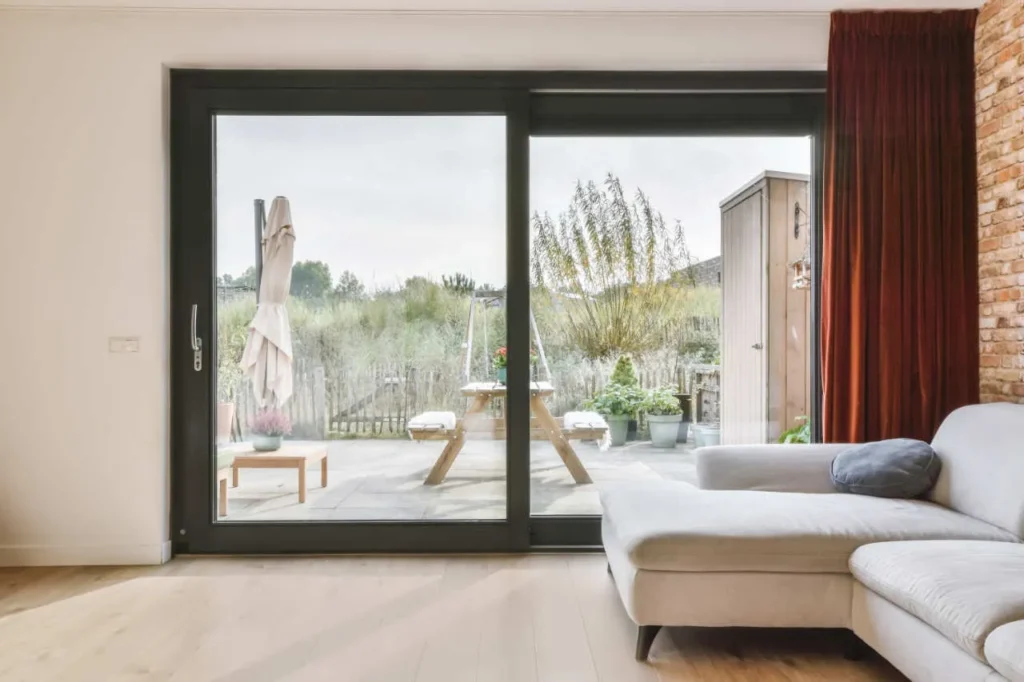Replacing Your Patio Door, It’s no secret that winters in Colorado can be quite chilly. When temperatures linger near freezing and a pristine layer of snow covers the landscape, ensuring the warmth and comfort of your home becomes essential. This may involve seeking a residential glass replacement provider in the Denver area and employing one or more of these five methods to prevent cold air from infiltrating your windows With Silver State Glass & Mirror Co.
Weather Stripping and Foam Tape:
Keep the cold at bay by applying weather stripping or foam tape to your windows during the winter months. A Denver-based residential glass replacement company can handle this task with precision, covering even the smallest hairline gaps. It’s advisable to complete this process before freezing temperatures arrive, preferably when the outdoor temperature is above 40 degrees.
Insulate Windows:
There are various ways to insulate your windows to ensure that cold air stays outside where it belongs. Window film insulation is a product designed to fully encapsulate your window with plastic film. Adding a layer of bubble wrap beneath the plastic film enhances the insulation, making it winter-proof.
Recaulk Windows and Doors:
Before winter sets in, inspect the caulking around your windows and doors for any signs of aging, cracks, or gaps that could allow cold air to seep in. Caulk, especially when exposed to extreme temperatures, can shrink over time. Regularly recaulking your windows is a wise measure to maintain proper sealing.
Choose Insulated Curtains:
Elevate your windows for winter by adding insulated curtains. These decorative items can reduce heat loss through windows by up to 30 percent. With a variety of insulated shades, blinds, or curtains available, you can find options that complement your color scheme and room design.
Upgrade to Energy-Efficient Glass:
When replacing your patio door, consider glass options like low-E (low-emissivity) coatings or triple glazing. These enhancements can further reduce heat loss and improve your home’s overall energy efficiency.
Consider Door Materials:
Not all patio doors are created equal. Opt for doors made of materials like vinyl or fiberglass, which have better insulation properties compared to aluminum. These materials help to maintain a comfortable indoor temperature and prevent heat transfer.
Use Draft Stoppers:
Draft stoppers are a simple yet effective solution to block cold air from sneaking in underdoors. For sliding patio doors, consider using draft stoppers along the bottom track to enhance insulation.
Replacing Your Patio Door Install New Windows:
If your windows are old or in poor condition, it might be time to invest in new ones. A residential glass replacement company in Denver can help facilitate this project. According to the US Department of Energy, there are various types of window frames and panes that perform exceptionally well in cold climates.

FAQs
1. How do I know if I should replace my patio door?
Look for signs like drafts, visible gaps, condensation between glass panes, or difficulty in opening and closing the door. These are indicators that it may be time to replace your patio door.
2. What types of patio doors are best for preventing heat loss?
Sliding doors with double or triple glazing, low-E glass, and insulated frames are the most effective at preventing heat loss and keeping cold air out.
3. Can replacing my patio door really save on energy costs?
Yes, modern energy-efficient patio doors can significantly reduce heat loss, leading to lower heating bills. Investing in quality materials and proper installation can yield noticeable savings.
4. What is the lifespan of a typical patio door?
A well-maintained patio door can last anywhere from 20 to 30 years. However, if it shows signs of wear or inefficiency, replacing it sooner can be beneficial.
5. Are there any rebates or incentives for replacing patio doors?
Many energy companies and local governments offer rebates or incentives for upgrading to energy-efficient doors and windows. Check with your provider or local energy office for available programs.
Conclusion
Replacing your patio door is more than just a home improvement project; it’s an investment in comfort, energy efficiency, and savings. By choosing energy-efficient options, ensuring proper insulation, and upgrading to modern materials, you can significantly reduce your heating costs and keep cold air at bay. Whether it’s adding insulated curtains, recaulking windows, or fully replacing your patio door, each step contributes to a cozier and more cost-effective home. Consult with a trusted residential glass replacement provider in Denver to explore your options and make the best choice for your needs. Stay warm and enjoy the benefits of a well-insulated home this winter!
































